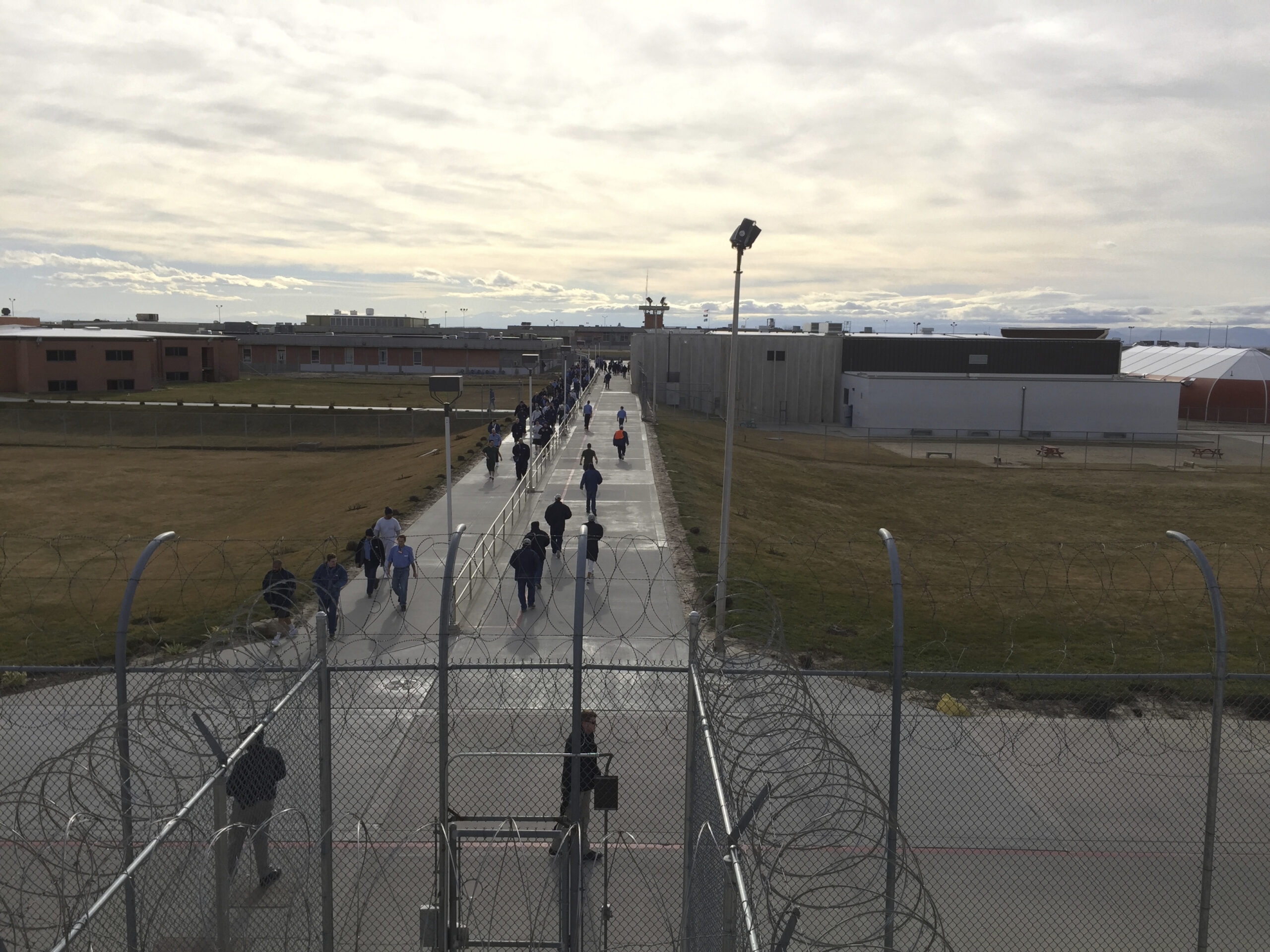The wheels of justice turn slowly. This is sometimes to avoid missteps and to ensure no innocents are unjustly punished. Sometimes it seems to be part of the punishment. But in the case of Jimmy Simpson, justice is nowhere to be found.
Simpson has been waiting more than eight years for a one-day hearing. Here is his story.
On May 14, 1996, at approximately 10:44 pm., Shondrae Saunders was shot and killed while on the porch of his home at 2211 Adams St. in Hollywood, Florida. The cause of death was a gunshot wound to the back of the head. Various witnesses would say that prior to his being shot, Saunders was arguing with two unidentified men.
Police on the scene questioned Saunders’s neighbor, Joelle Kennedy. She told police she did not see the shooting or the shooters. Kennedy later denied any knowledge of the shooting in her testimony during the grand jury investigation. She then denied any knowledge a third time under oath in a deposition conducted by Simpson’s trial attorney.
But while Simpson was awaiting trial, Kennedy was arrested amid domestic violence. Held in the county jail, faced with possible jail time and losing custody of her children, Kennedy changed her story. She identified Simpson as the shooter and agreed to testify against him. In December 1997, after a whirlwind prosecution, Simpson was tried, convicted, and sentenced to life in prison — all the while maintaining his innocence. The entire process took less than 12 months. In this case, it seemed justice was swift.
During Simpson’s trial, Kennedy testified against him. Her testimony was vital to the prosecution’s case and convinced the jury Simpson was guilty. With his trial concluded, Simpson was transported to the Florida Department of Corrections to begin serving his life sentence.
Simpson began working diligently to clear his name. He filed several motions, exhausting every option in the hope that the court would revisit the notion of justice and set him free. These pleadings were denied. Then, in November 2012, Simpson filed a motion for post-conviction relief based on newly discovered evidence, and the 4th District Court Of Appeals ruled in his favor, granting him another chance to prove his innocence.
Simpson found new evidence that put the original guilty verdict in doubt. A man named Clifton Johnson came forward swearing under oath that Simpson was not the man who committed the original killing. The appeals court deemed this evidence credible enough to grant him an evidentiary hearing, a small-scale trial-like hearing, to present the evidence to a judge.
In February 2013, Simpson was transported back to Broward County’s jail for what should have been a simple proceeding. Little did anyone know how complicated things would become.
Simpson’s case ran into one delay after another. The courts were working through an ever-increasing case backlog, with limited resources to reduce the logjam. By 2016, Simpson’s frustration was mounting. Each court appearance brought another delay and growing disappointment. Three years seemed more than enough to hear one man testify.
There was a silver lining to all the delays. The chance for another witness to come forward. A surprise change of heart brought Kennedy back to the witness stand. This time, she would speak on Simpson’s behalf.
In July 2016, Kennedy confessed in an affidavit that she lied during Simpson’s trial. She admitted that, in 1997, she was in trouble and authorities were threatening to take her children from her unless she testified against Simpson. Kennedy claimed the prosecutor knew she did not see Simpson commit any crime and allowed her to lie under oath. In 2017, Simpson filed an amendment to his appeal submitting Kennedy’s affidavit claiming it as newly discovered evidence. The court granted the amendment, recognizing the importance of Simpson’s claim.
In 2018, Simpson’s attorney, along with the prosecutor, conducted a sworn deposition of Kennedy. During this deposition, Simpson’s attorney and the prosecutor were allowed to question Kennedy in an attempt to establish the truth. With the Kennedy deposition complete, Simpson moved another crucial step closer to having his day in court. He was hopeful his next court appearance would bring that chance. Instead, he received another delay. It seemed the wait would never end.
Then, in 2019, the unthinkable happened. Kennedy died. How could things have come to this? Why was a simple hearing taking so long to complete? How would Kennedy’s death affect Simpson’s appeal? This devastated Simpson and left his attorneys scrambling for answers.
Simpson’s attorney discovered a law that makes concessions for judges to allow a previous witness’s statement to be admissible if the witness dies before they can testify in court, as long as the statement was made under oath and was subject to cross-examination. Kennedy’s statement fit the criteria.
Now, Simpson must have a hearing where his attorney will try to convince a judge to allow Kennedy’s confession to be heard. They must address this issue before his appeal can move forward. Ironically enough, as he waited more than seven years to have the first hearing, the delay has created a need for another hearing.
Today, Simpson remains in the Broward County jail waiting for the hearing to determine the admissibility of Kennedy’s statement. Regardless of that outcome, he will eventually be able to move forward with his other claims. He will have his day in court.
But the broader point stands. I have heard that a benevolent society would rather 100 guilty men go free before one innocent man is wrongfully punished. This brings me back to the beginning of this article. Is this slothful justice part of the punishment? Would the prosecutors have moved more quickly if they believed Simpson’s claims were fruitless? Are the delays Simpson has endured a means to extend his punishment? Why has it taken so long?
As a moral society, we should ask these questions.
Robert Lefleur works as a prison consultant.







